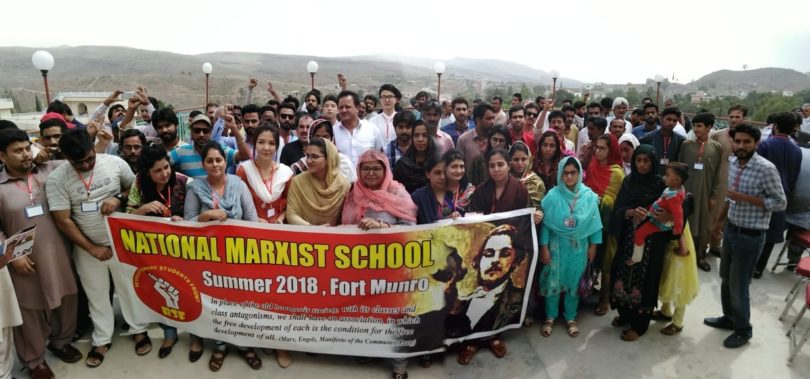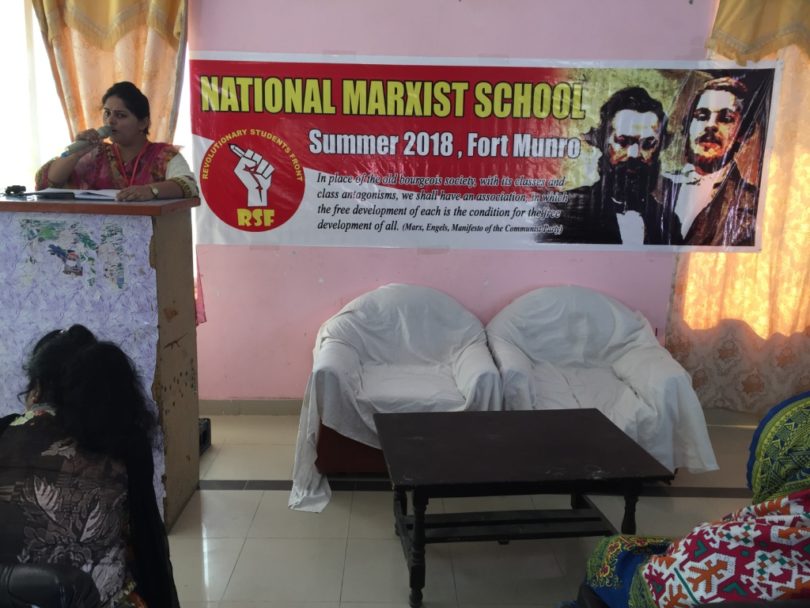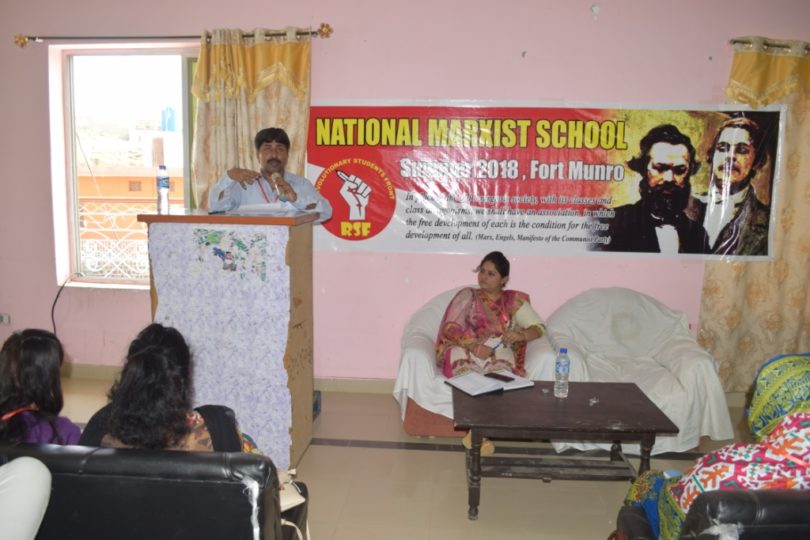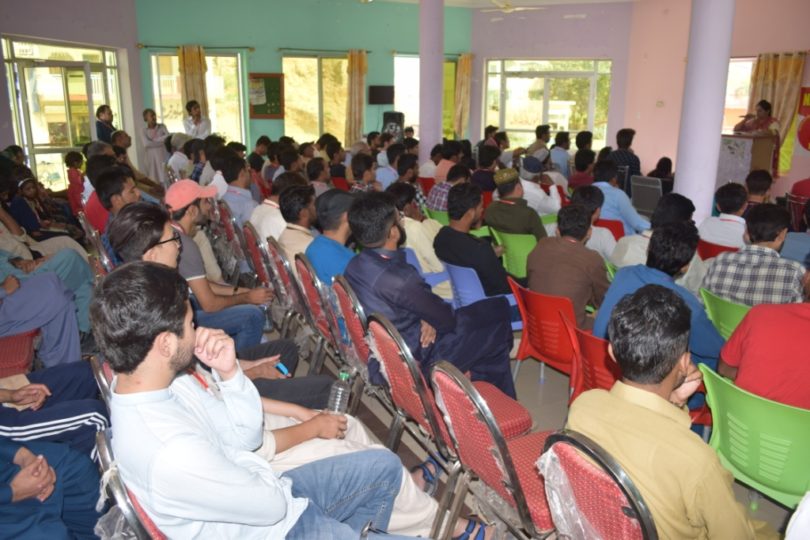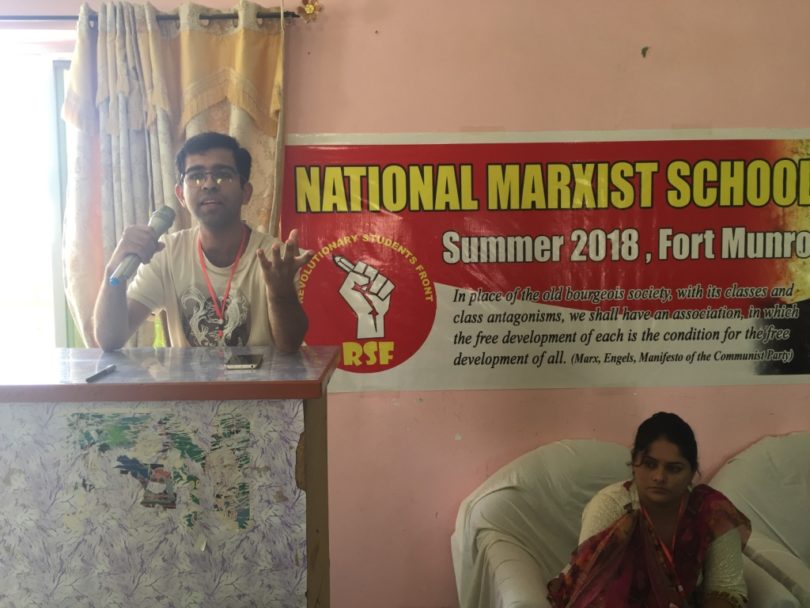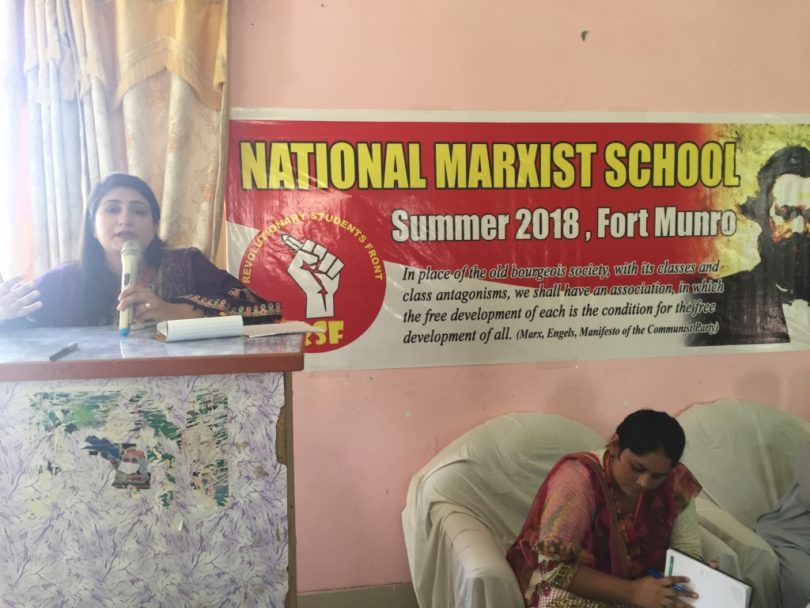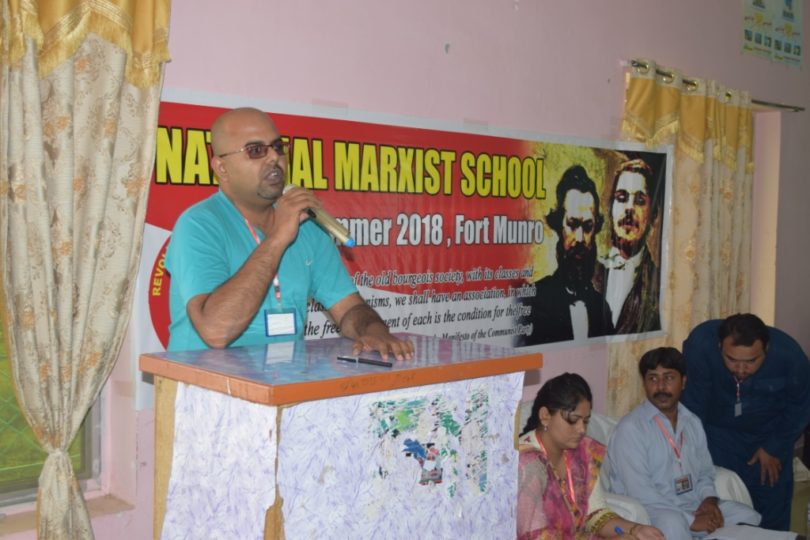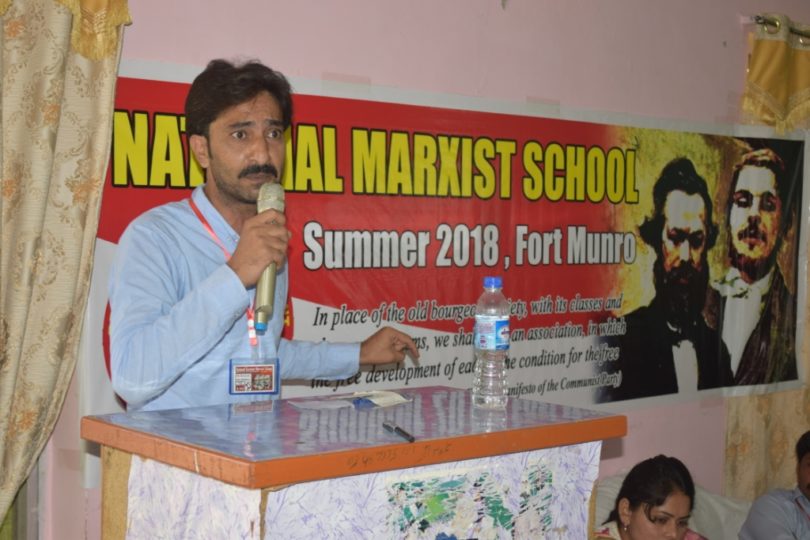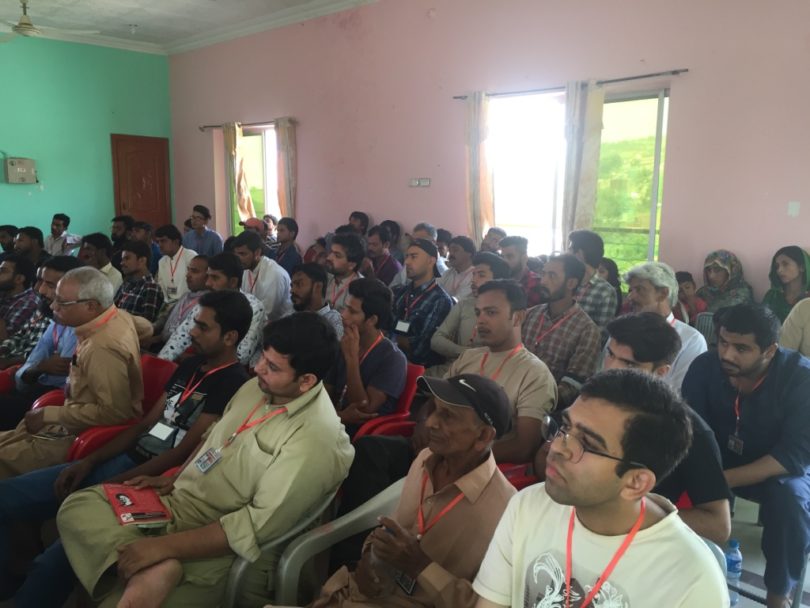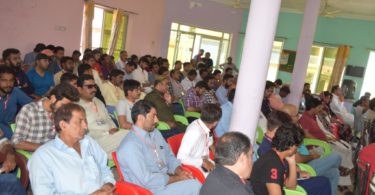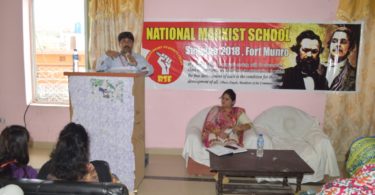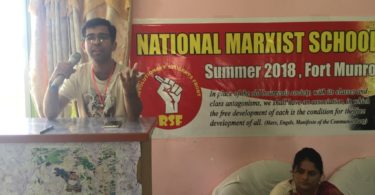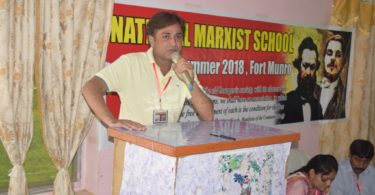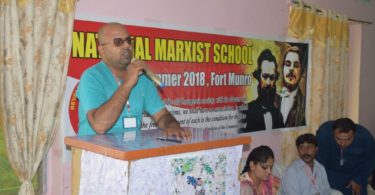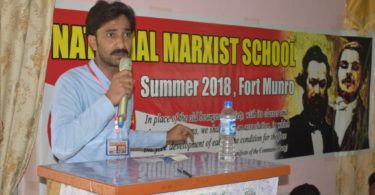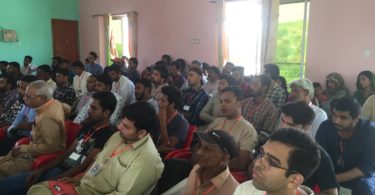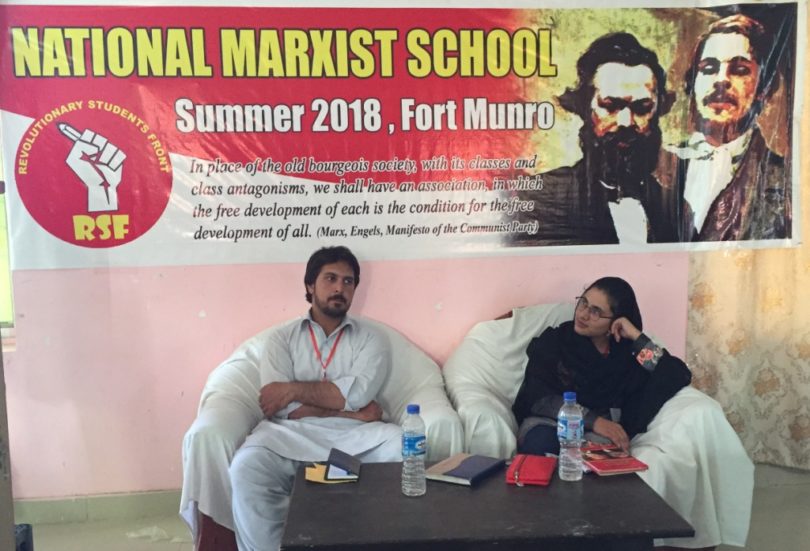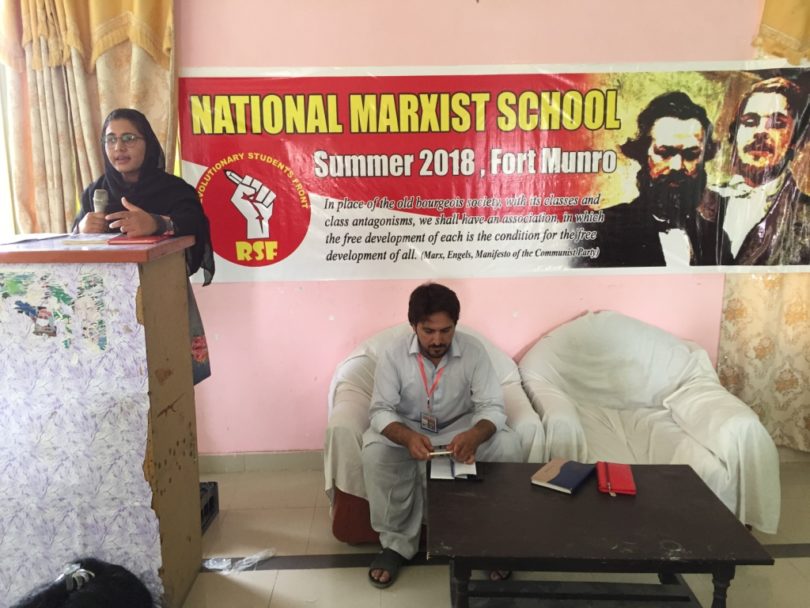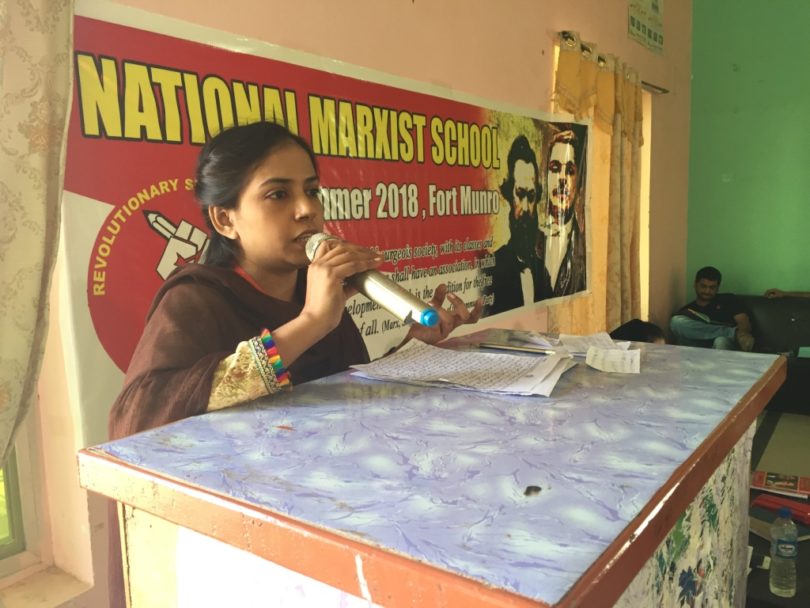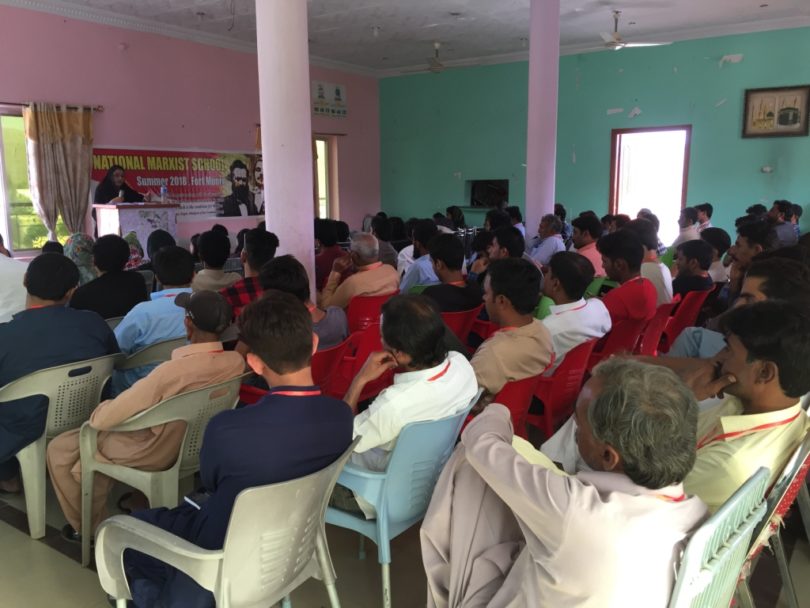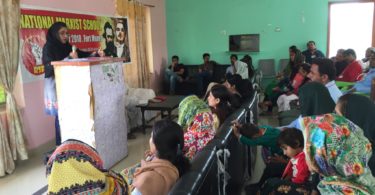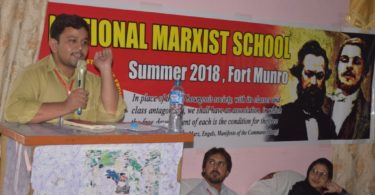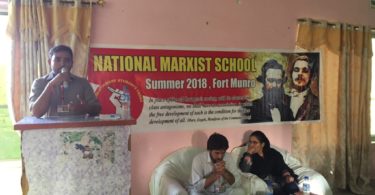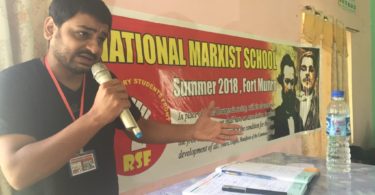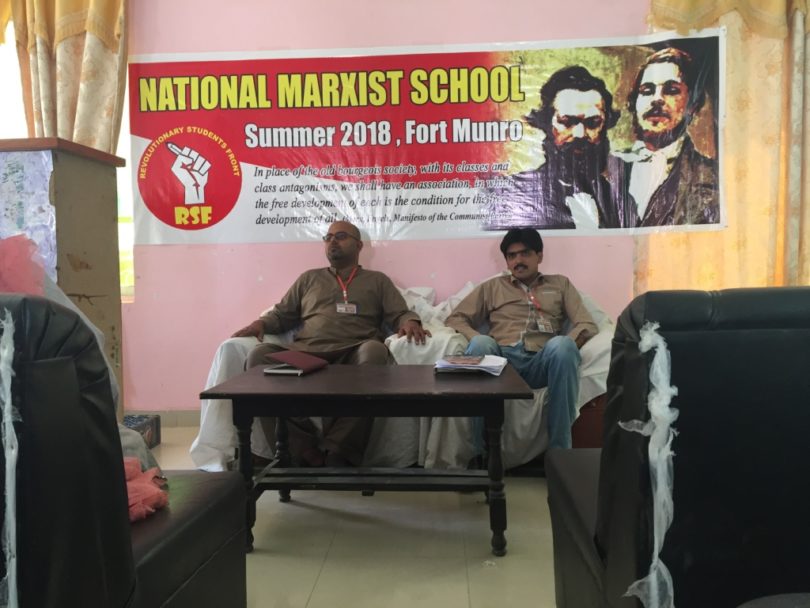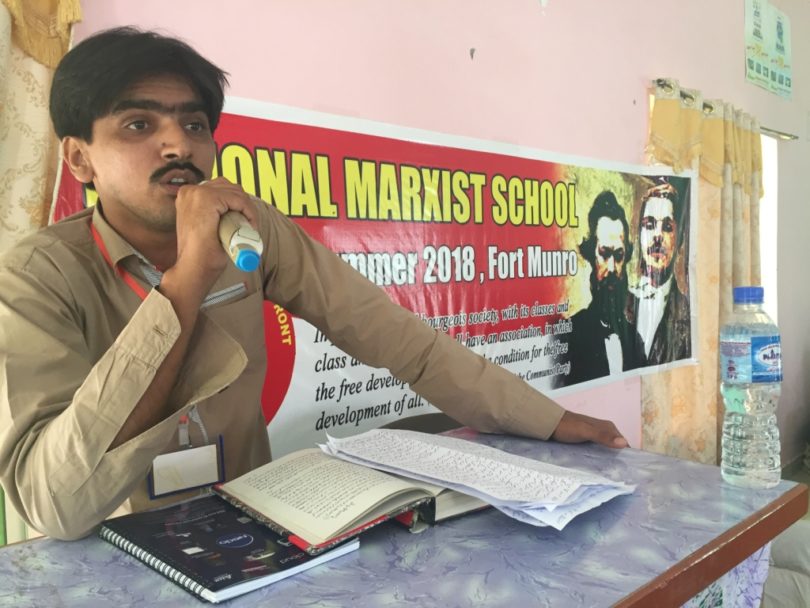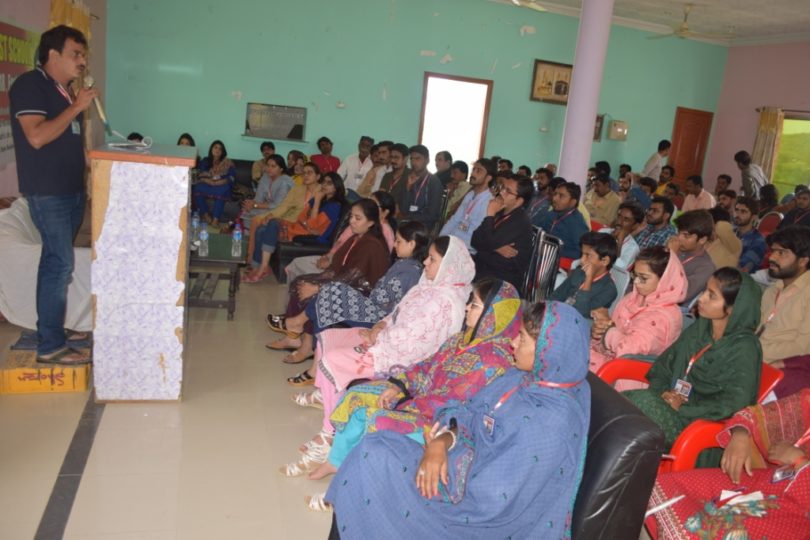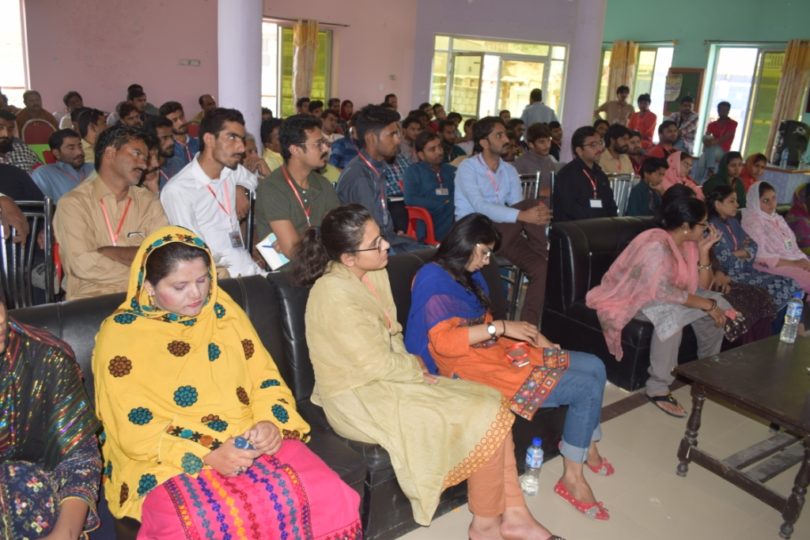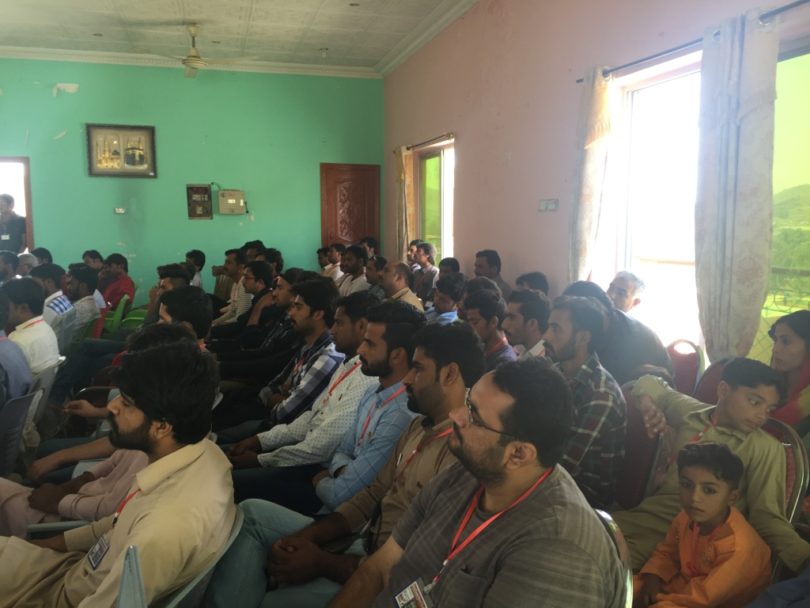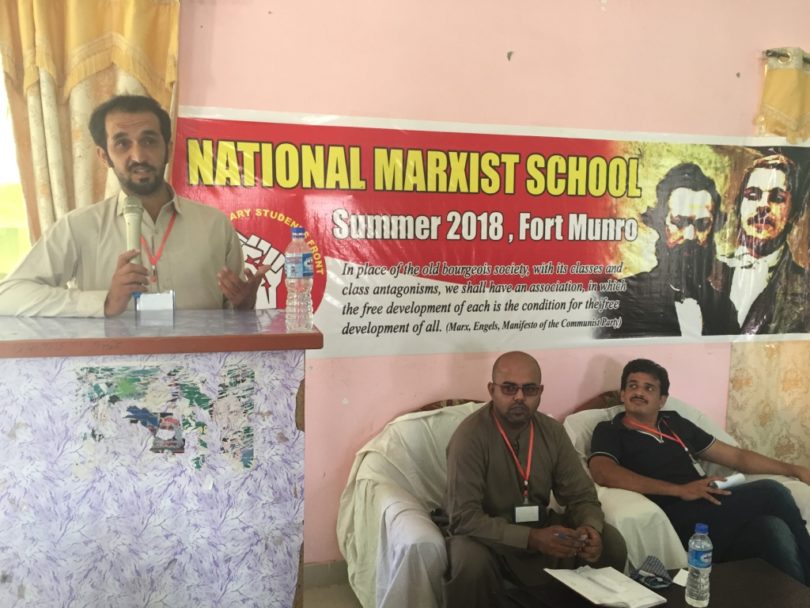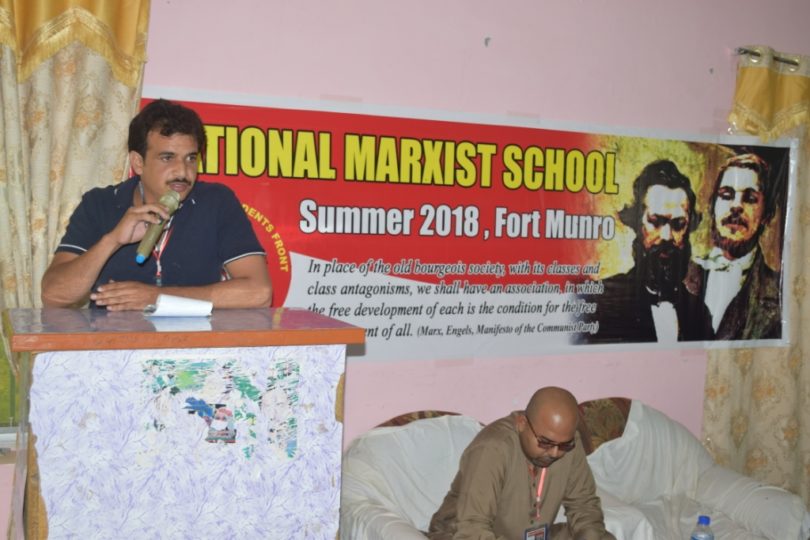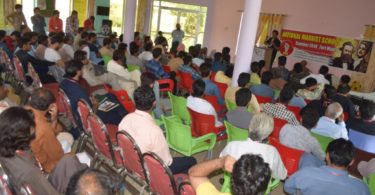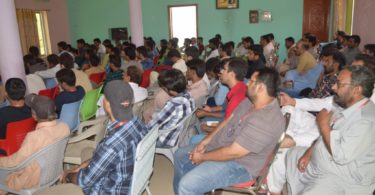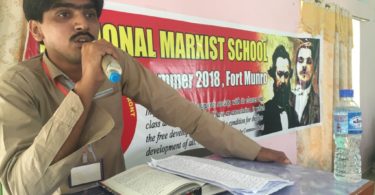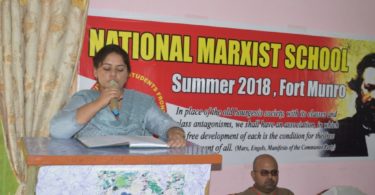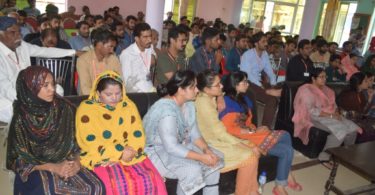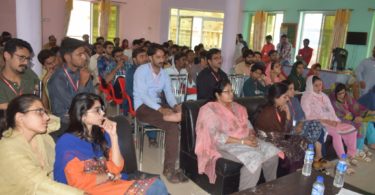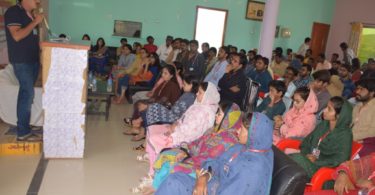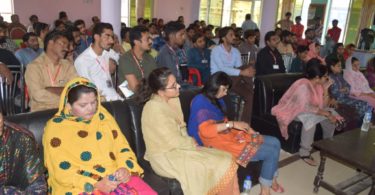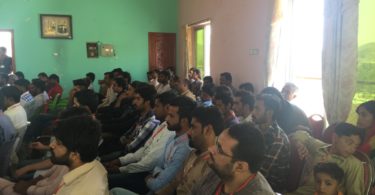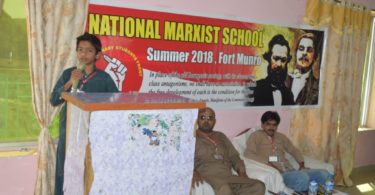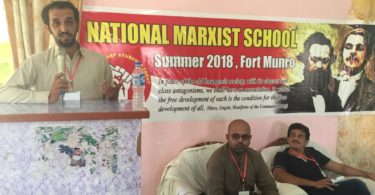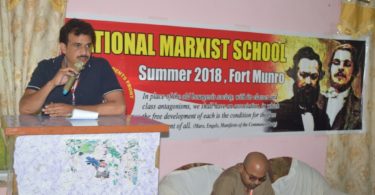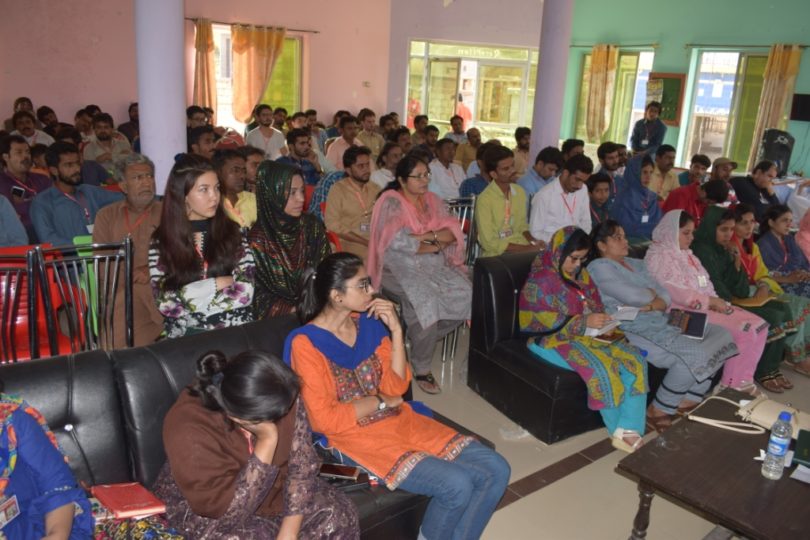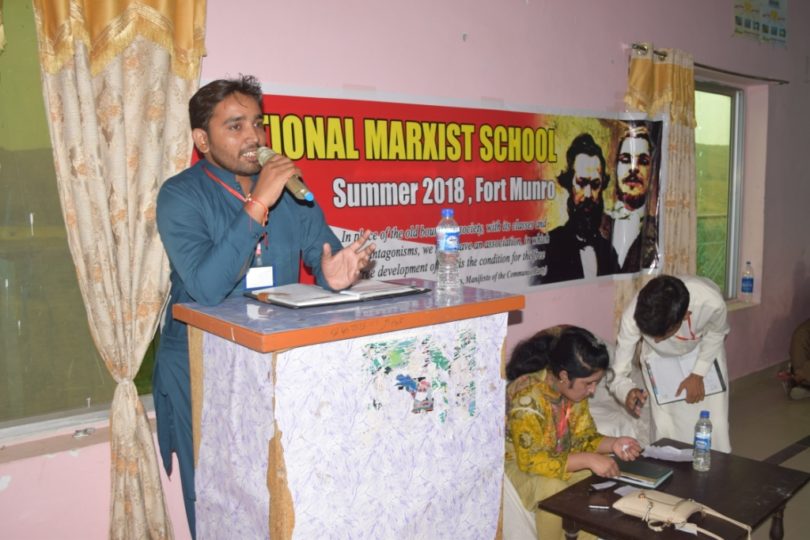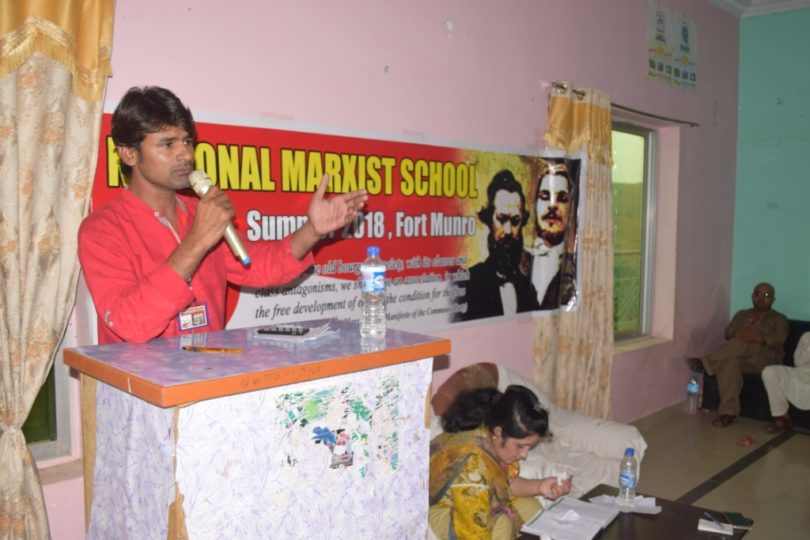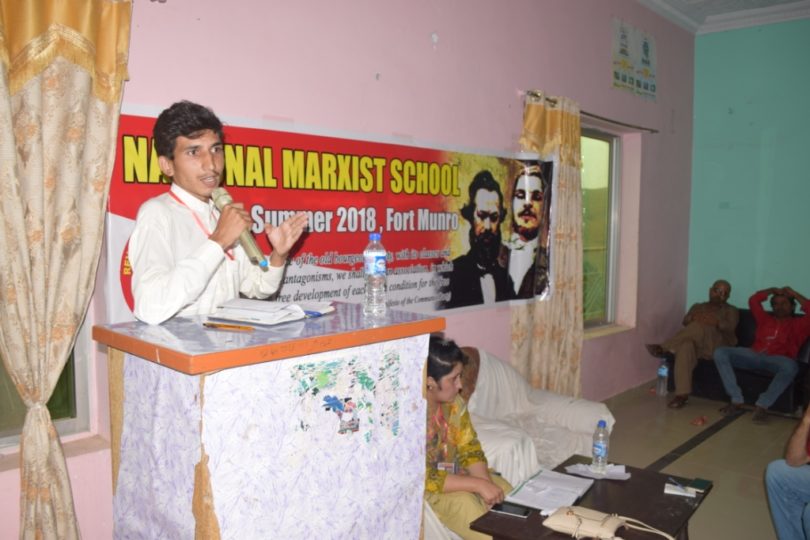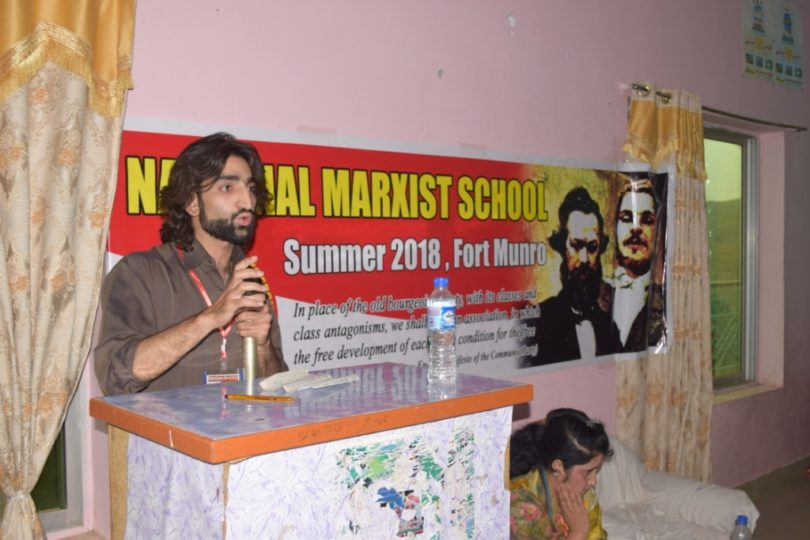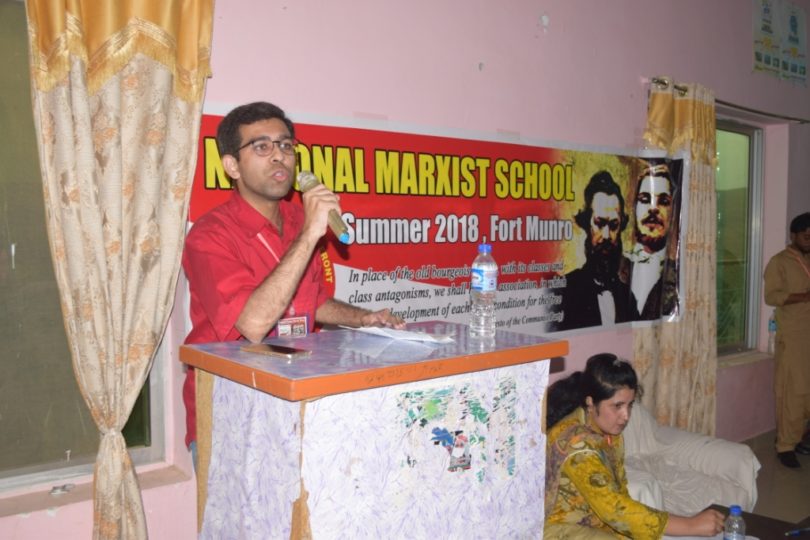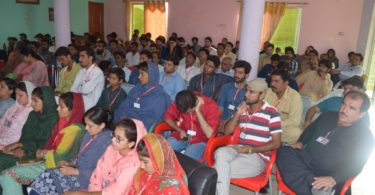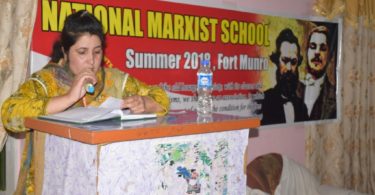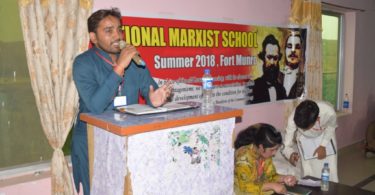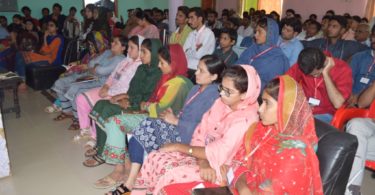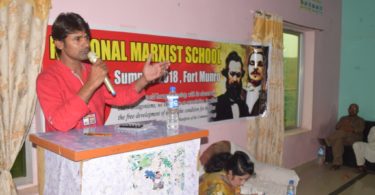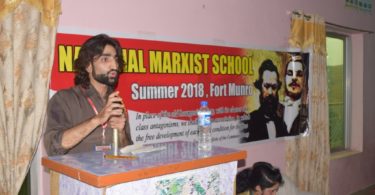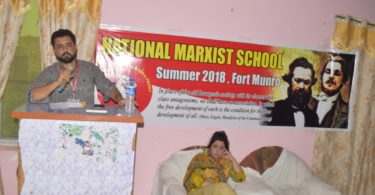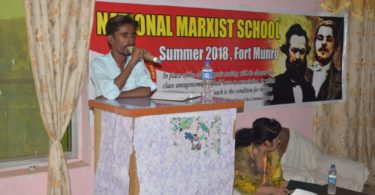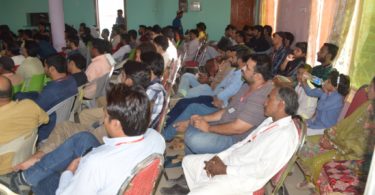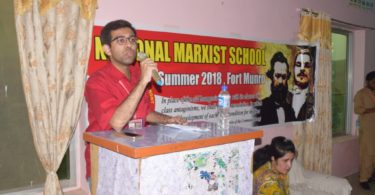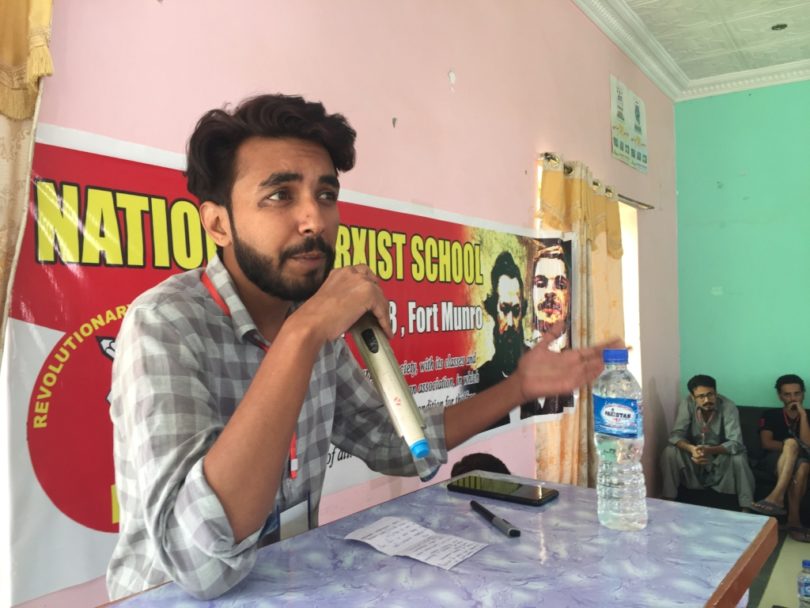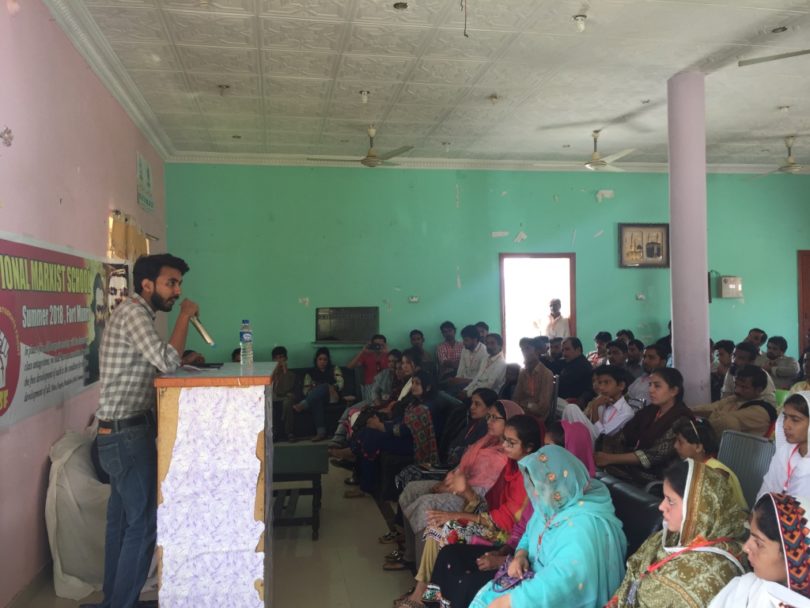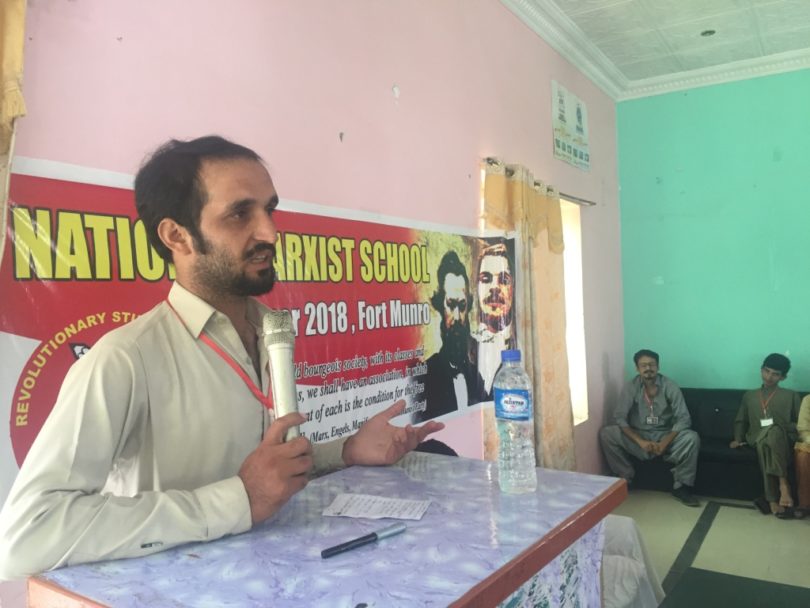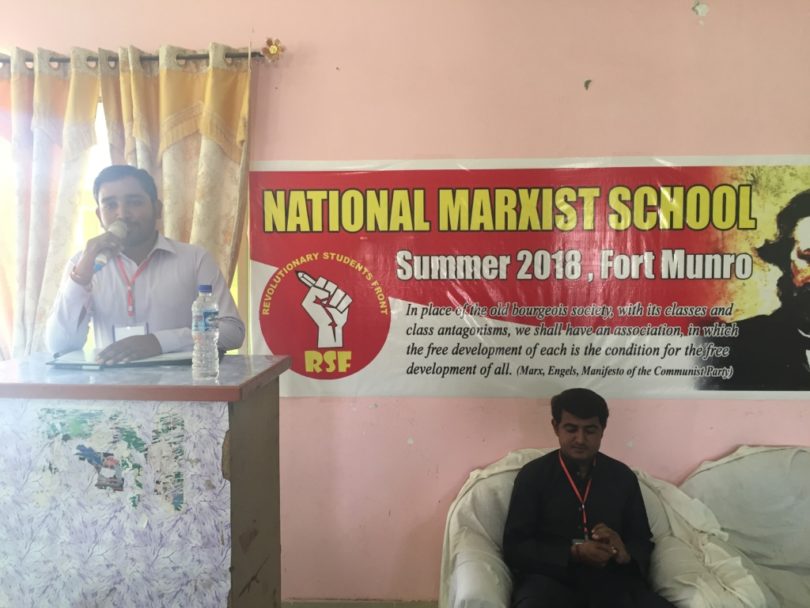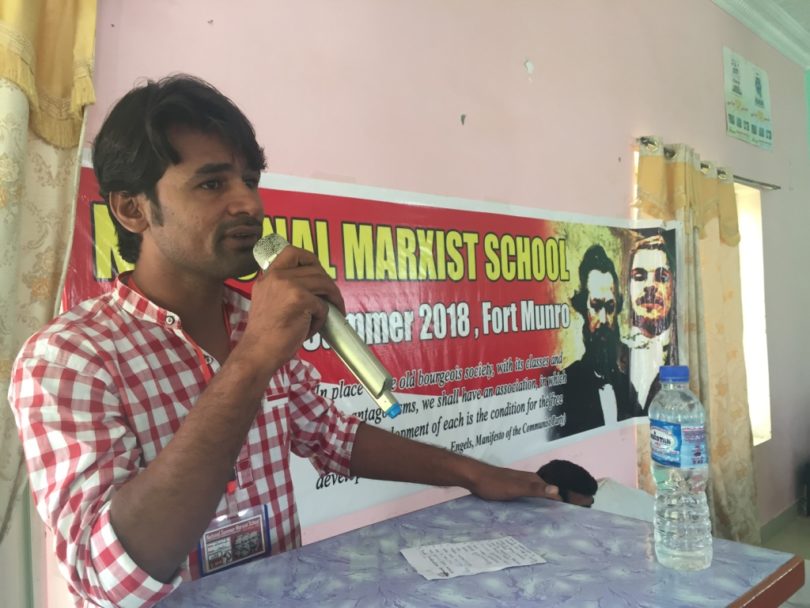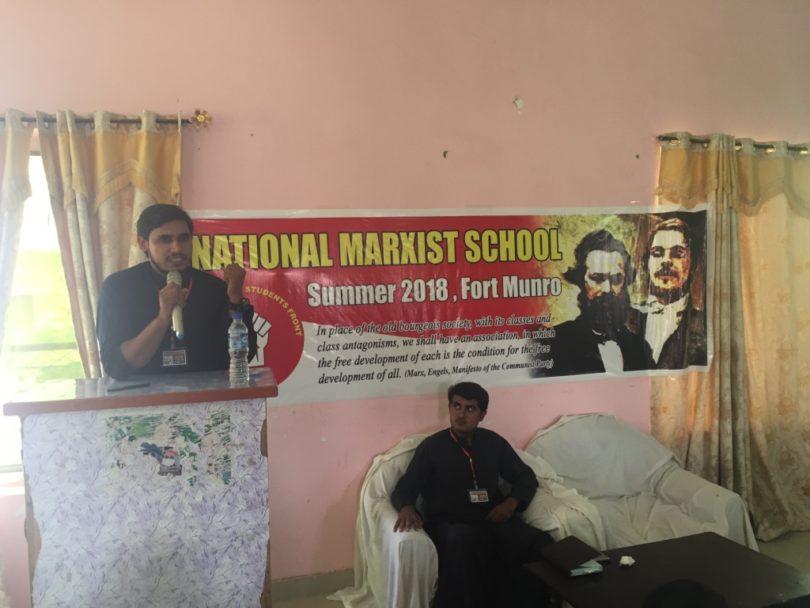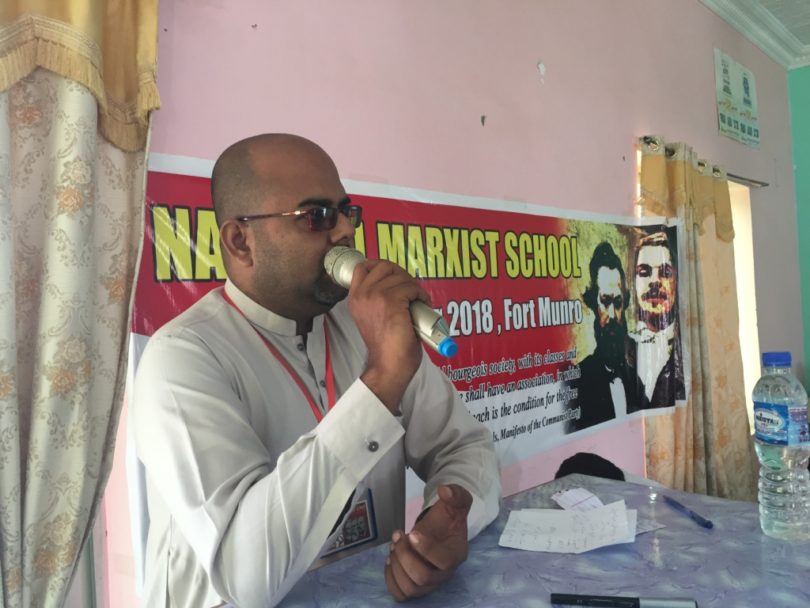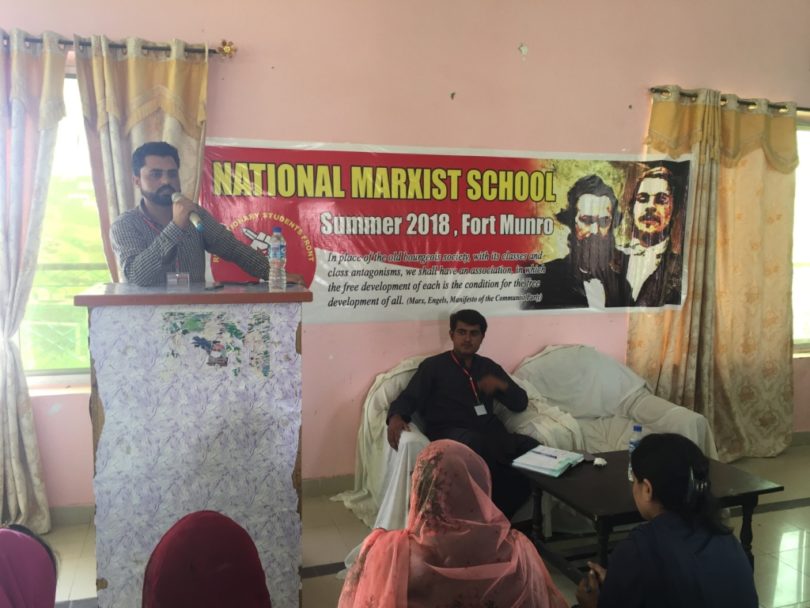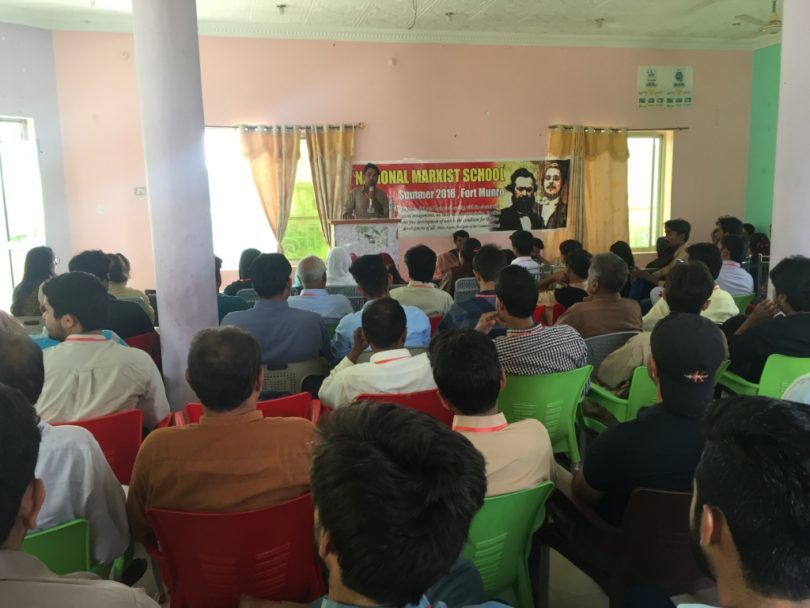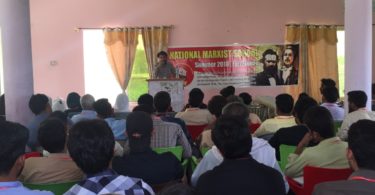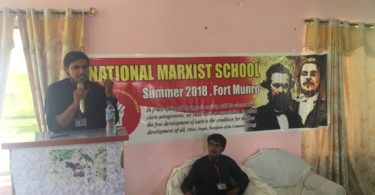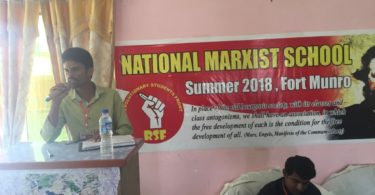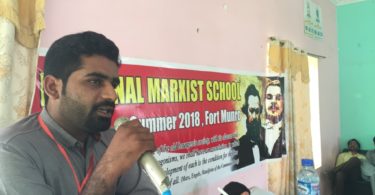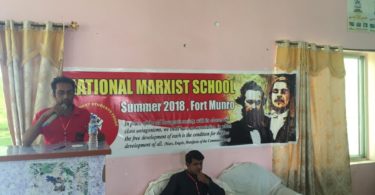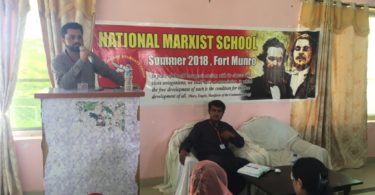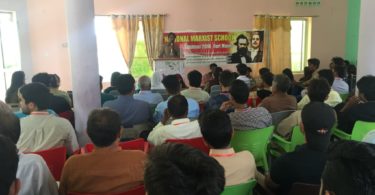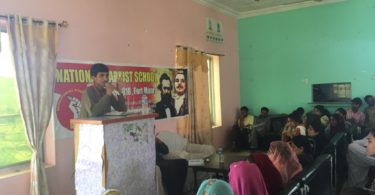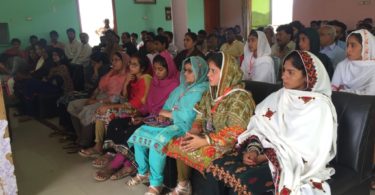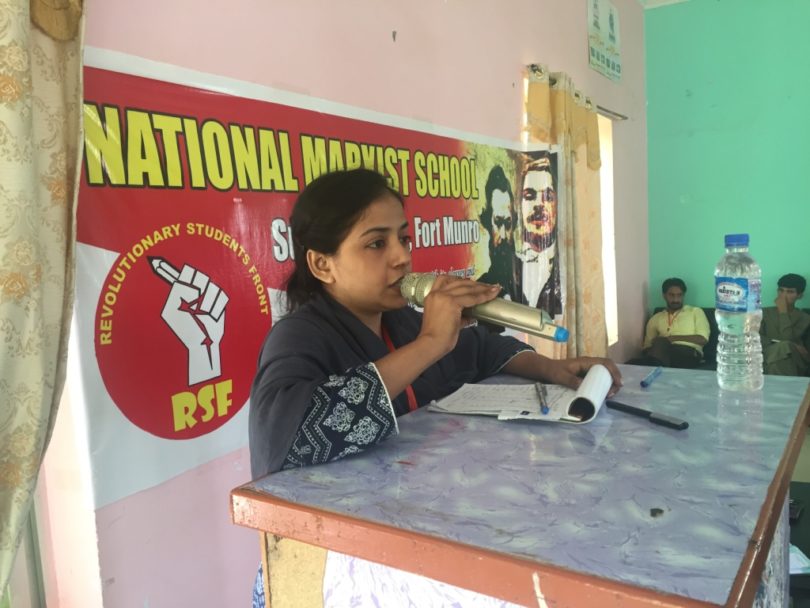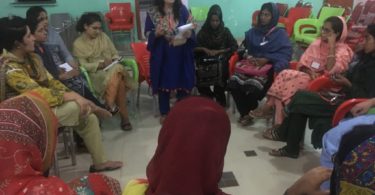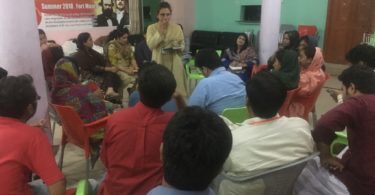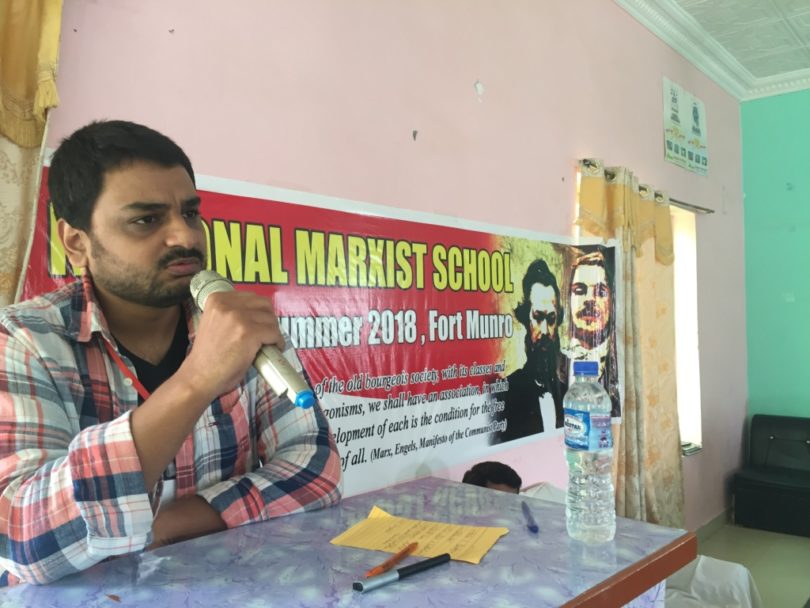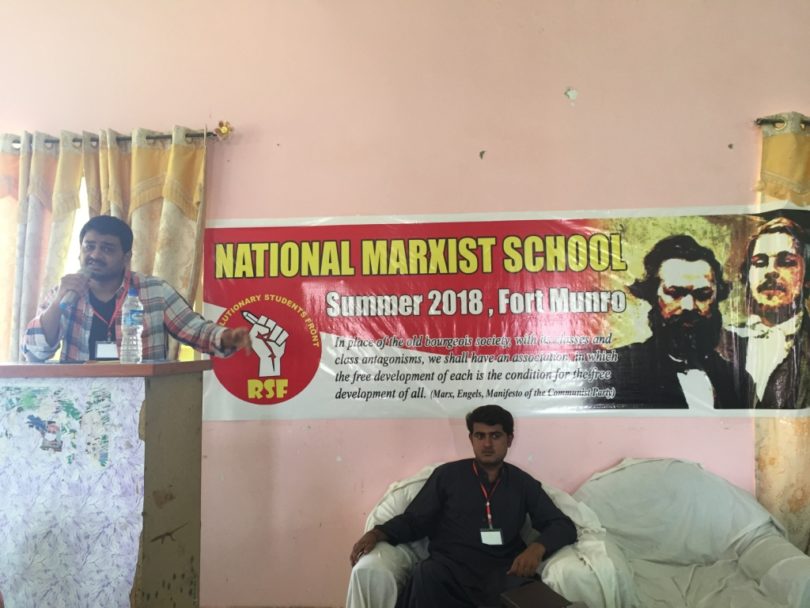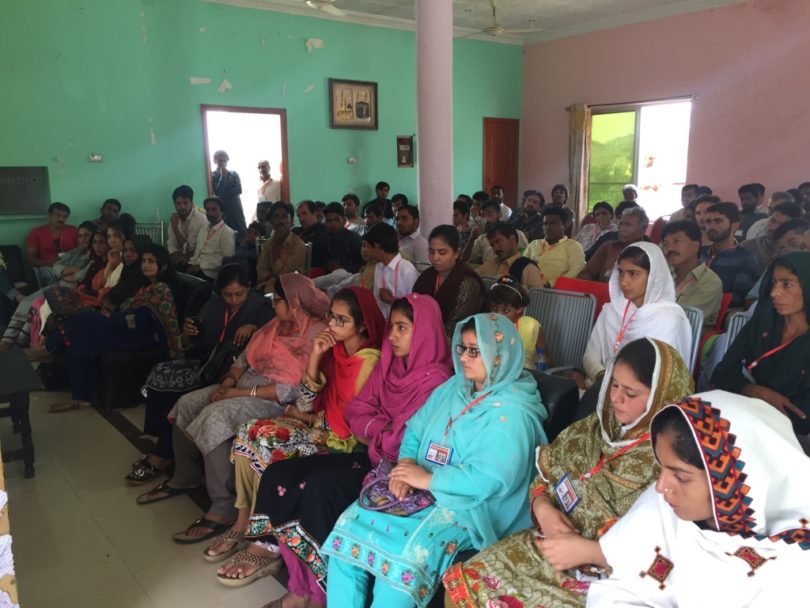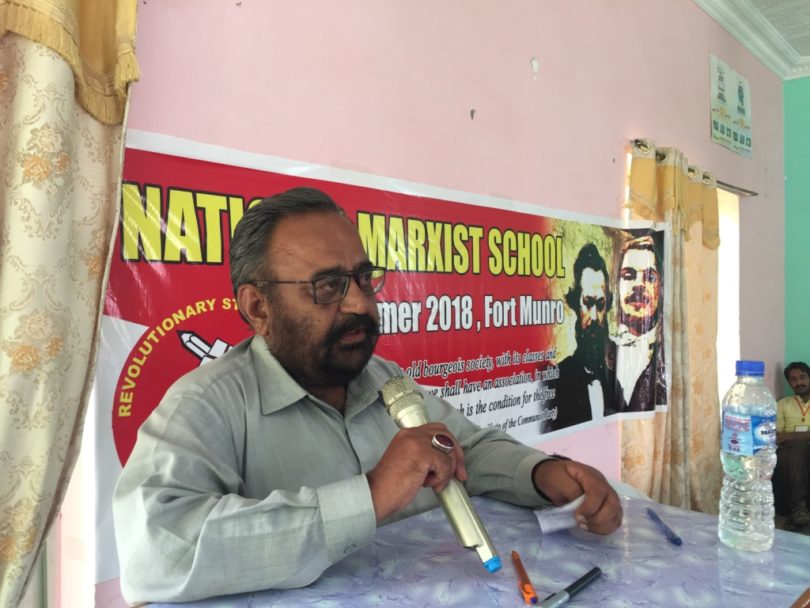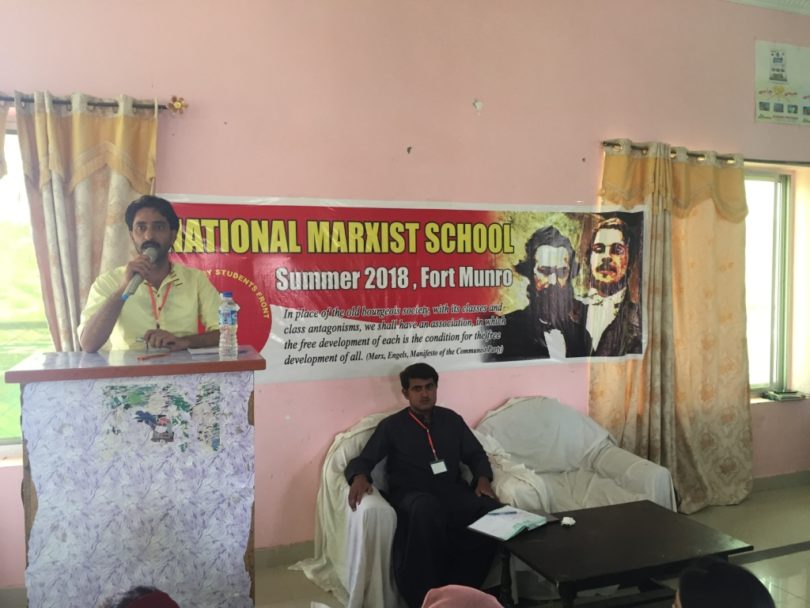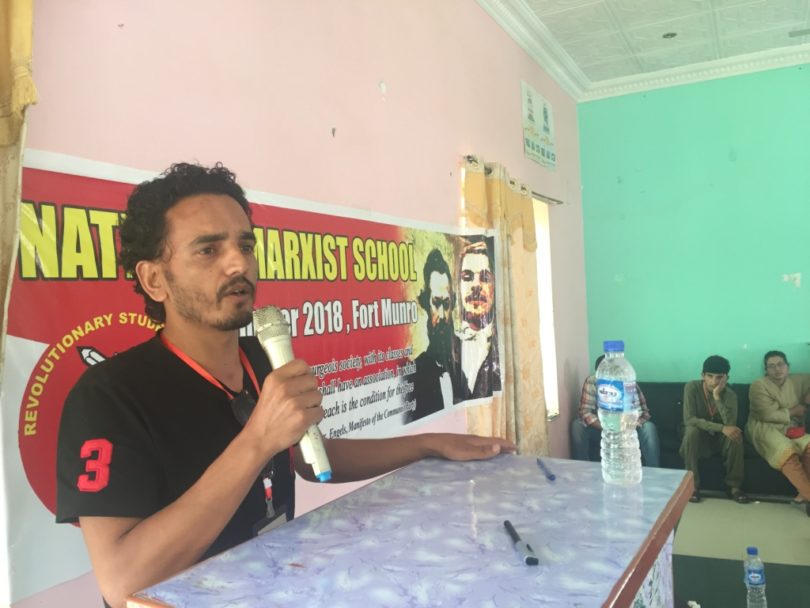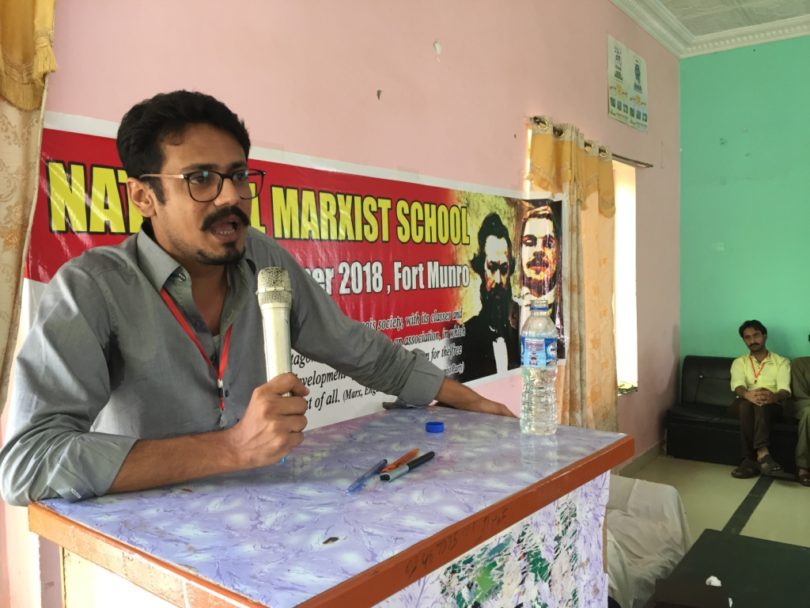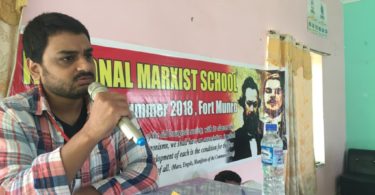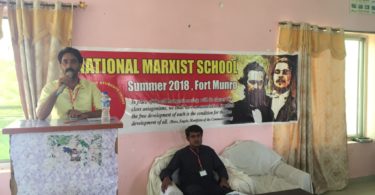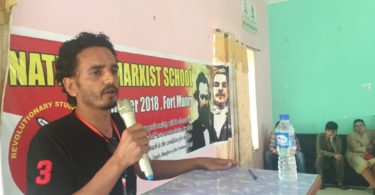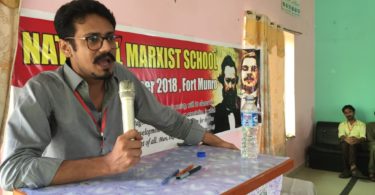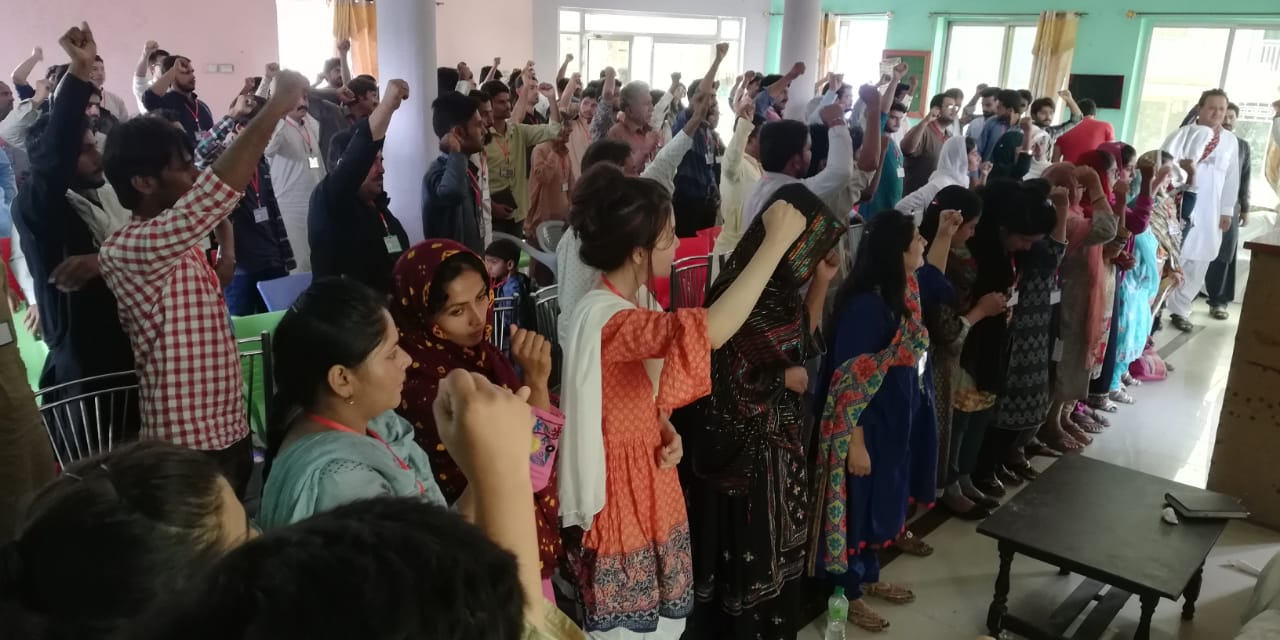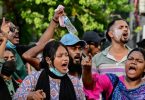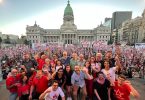By: Tayyab, Saifee
Photography: Sattar, Pervaiz
Revolutionary Students Front (RSF) organized Three Days Summer Marxist School on 31st August and 1st, 2nd September 2018 at Fort Munro, D G Khan. Despite heavy financial odds, difficult transportation, and deteriorating living conditions, Most of the total 173 comrades including 25 female comrades reached Fort Munro by the evening of 30th August to attend the school with revolutionary spirit.
On the morning of 31st August, The School started by reciting revolutionary poetry, singing revolutionary songs and anthems. Rouf Lund, from the host region, welcomed all the participants. The first session on World and Pakistan Perspective was chaired by Lata from Hyderabad and Shehriyar Zouq from Jampur led the discussion. Zouq explained the overall economic crisis of the world and its social and political impacts. He discussed the trade war between America, Turkey, and China. He explained the rise in the value of the dollar and the decline in the currency of India, Pakistan and other third world economies and the increasing debts. Devaluation of Pakistani Rupees will cause an increase in inflation rates and subsequently decreasing the living standards of working people which are also in the worse state. It also will push a majority working class to live below the poverty line. He also explained the present social and political crisis of Pakistan. He critically discussed the Pakistan Tahreek-e-Insaf present policies resulting in the increase the prices of basic needs i.e. LPG and electricity. The privatizing policy will ignite the anger of masses. The government will be unable to produce 1 Crore jobs without changing the whole capitalistic mode of production, the situation can be changed with the transformation of whole economic system by the Socialist revolution. The leadoff followed by questions and contributions. Imran Kamyana from Center, Ahmad Ammar from Rawalpindi, Zeeshan from Multan, Shakeela from Baluchistan, John Pal from Faisalabad, Saeed from Sukkur, Tariq from Rahimyar Khan and US-based comrade from Baluchistan, Razik took part in the discussion. While Awais Qarni from Center answered the questions and summed up the whole discussion.
After the Lunch break, The Second session ‘What is Socialism?’ was conducted. Which was based on the newly published book by The Struggle Publications with the same title. The session was chaired by Irfan from Baluchistan while Khakula Bacha from North KPK led the discussion. Khakula briefly explained the basic questions and terminologies related to Socialism. She explained the historical evolution of the different system by taking account of primitive communism, slavery, feudalism. She also discussed the material basis of prevailing Capitalism as a dominant mode of production. She discussed the evolutionary phases of class struggle and Combined and uneven development of societies. She also discussed the social elements, economics, politics, movements, rebellions, revolutions and the insurrections. The leadoff followed by questions and contributions. Bushra from Kashmir, Umer Rasheed from Central Punjab, Lata from Hyderabad, Altaf from Jampur, Sachal from Multan, Lajwanti from Hyderabad and Hatim from Karachi intervened in the discussion while Imran Kamyana from Center answered the entire question and summed up the discussion.
The second day of school, 1st September, begins with reciting of revolutionary poems and songs by different comrades. The third session of the school was based on the “50 years of 1968-69 Pakistan’s Revolution”. The session was chaired by Zeeshan from Multan and the discussion was led by Majid Memon from Karachi. Majid explained the pre-revolutionary situations of the world and especially Pakistan. He also discussed the partition of sub-continent. He explained the struggle of 139 days of 1968-69 movement and consequences. These 139 days are actual history of the working class of Pakistan that has been deliberately ignored by the ruling class dominated media and academics. These are the days when Pakistan’s deprived classes shackle the power of rulers and challenge their agricultural and industrial ownership. He also mentioned the contribution of unknown soldiers in the movement and discussed the impacts of movement and how the PPP and Bhutto emerged as a leader. He also takes account of the betrayal of the Stalinist left during the revolution and the partition. The leadoff followed by questions and contributions. Sajjad Jamali from Dadu, Altamsh from Kashmir, Hatim from Karachi, Lata from Hyderabad, Asif Rasheed from Rawalpindi, Sartaj from Baluchistan, Rouf from D G Khan and Qarni from Centre made contributions and Umer Rasheed from Faisalabad answered the questions and summed up the discussion.
After the Lunch break, the fourth session was conducted on “Environmental disasters and Socialist alternatives”. The session was chaired by Bushra from Kashmir while Dr Haseeb from Wah Cantt led the discussion. In his leadoff, Haseeb highlighted the impacts of industrial waste and profit lust of multinational corporateson the environment and planet. He said the environment is getting worse day by day. Today the whole world is facing the environmental disasters which are resulting in the changing of the whole ecosystem and also causing the destruction of the biome. He said the present crisis is due to the unrestricted burning of fossil fuels which are causing to release more carbon in the environment and ultimately in the temperature of the world. Carbon is a heat-trapping gas and also produced by the greenhouse effect and causing global warming. He also investigated the other widely discussed alternatives such as hydropower, wind power and solar energy. But capitalists can’t move to other environment-friendly ways due to their profit interests. Environmental change causing the antimicrobial resistance and eventually, new diseases and varieties of microbes are emerging. This would be alarming for mankind. The leadoff followed by questions and contributions. Manish from Hyderabad, Muqaddas from Jampur, Kapil from Jamshoro, Rameez from Dadu, Lawangeen from North KPK, Nadir from Baluchistan, Saqlain from Faisalabad and Ahmad from Central Punjab made interventions and Ahmad Ammar Rawalpindi answered all the question and summed up the discussion.
On the morning of 2nd September, the Fifth and last session of the School was chaired by Sajjad Jamali from Dadu and Saifee from Central Punjab opened the discussion on “Youth Work and Strategy”. Saifee shed light on the past of students’ politics, the role of students in the 1968-69 revolution, the recent movements of India and Bangladesh. He also analysed the objective state pakistani youth and students specifically, also discussed strategy in present objective conditions. He also spoke on the role of youth in the building of a revolutionary party and the strategy and tactics, the dramas, sports, poetry and street theatres to attract the youth to Marxist ideas. He strongly stressed upon the work for the development of the student front, the “Revolutionary Students Front” (RSF). The leadoff was followed by regional youth reports and targets of the new study circles and branches in universities, colleges and schools.
Whereas Lajwanti from Hyderabad presented the Women Commission report which was held previous day.
Asif Rasheed from Rawalpindi, Rashid Sheikh from Kashmir, Nadeem Pasha from Multan, Imran Kamyana from Center and others took part in the session of open debate.
Rouf Lund from the host region presented school’s finance report. Awais Qarni from Center made the closing remarks. The school was historically marvelous. The cultutre, environment and mood were full of enthusiasm, energy and the revolutionary spirit. Many new comrades from all over the country met each other and shared their experiences. The School was concluded with the Workers’ Internationale anthem.
